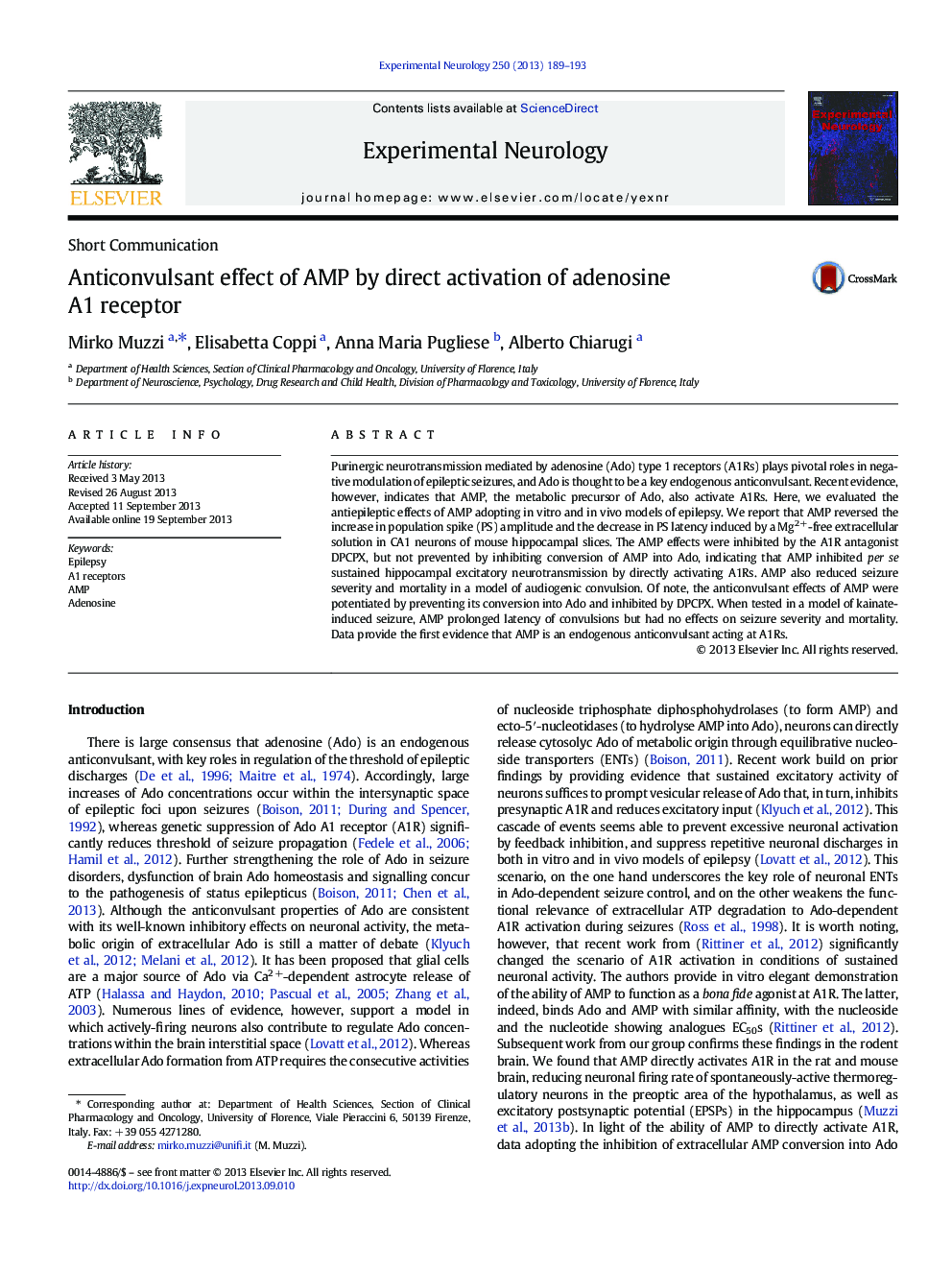| Article ID | Journal | Published Year | Pages | File Type |
|---|---|---|---|---|
| 6017933 | Experimental Neurology | 2013 | 5 Pages |
Abstract
Purinergic neurotransmission mediated by adenosine (Ado) type 1 receptors (A1Rs) plays pivotal roles in negative modulation of epileptic seizures, and Ado is thought to be a key endogenous anticonvulsant. Recent evidence, however, indicates that AMP, the metabolic precursor of Ado, also activate A1Rs. Here, we evaluated the antiepileptic effects of AMP adopting in vitro and in vivo models of epilepsy. We report that AMP reversed the increase in population spike (PS) amplitude and the decrease in PS latency induced by a Mg2Â +-free extracellular solution in CA1 neurons of mouse hippocampal slices. The AMP effects were inhibited by the A1R antagonist DPCPX, but not prevented by inhibiting conversion of AMP into Ado, indicating that AMP inhibited per se sustained hippocampal excitatory neurotransmission by directly activating A1Rs. AMP also reduced seizure severity and mortality in a model of audiogenic convulsion. Of note, the anticonvulsant effects of AMP were potentiated by preventing its conversion into Ado and inhibited by DPCPX. When tested in a model of kainate-induced seizure, AMP prolonged latency of convulsions but had no effects on seizure severity and mortality. Data provide the first evidence that AMP is an endogenous anticonvulsant acting at A1Rs.
Keywords
Related Topics
Life Sciences
Neuroscience
Neurology
Authors
Mirko Muzzi, Elisabetta Coppi, Anna Maria Pugliese, Alberto Chiarugi,
